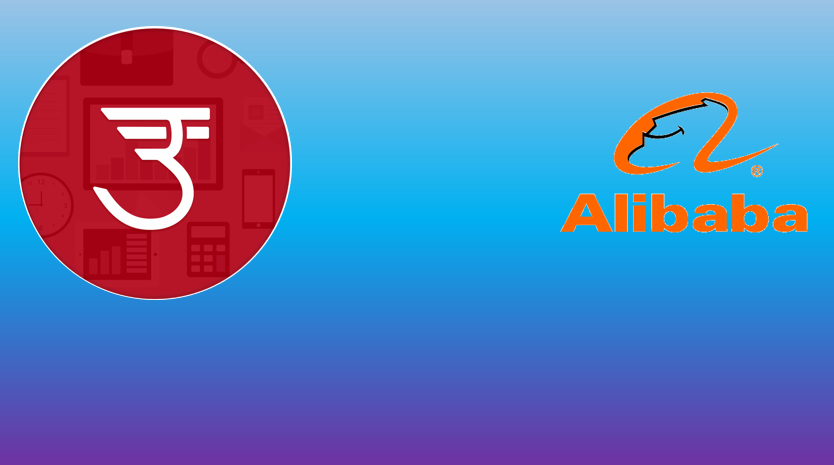Will Udaan be India’s Alibaba
Udaan has been the buzzing name in B2B platforms. By becoming the fastest unicorn in India, Udaan is making all the right noise. Udaan began its operations in 2016 by providing logistics for staples, electronics, and apparel. Since its launch, Udaan has become a harbinger of hope for the traditional retail supply chain. It has already being likened to the likes of Alibaba and Flipkart. Let’s explore how Udaan started, how it is helping business in India, and importantly will it be India’s Alibaba.
Idea behind Udaan
Three ex-Flipkart employees Amod Malviya, Sujeet Kumar, Vaibhav Gupta quit around the same time. They did not have a business idea, nor were they planning anything together at the time of quitting. All they had in mind was to
- To do something big (on large scale)
- Possibly create something disruptive and
- Make something which had an Indian flavor
Around 2016, most startups focused on the B2C segment. This segment had seen exponential growth in the last few years. B2C had bought convenience for the end customer. However, B2B was a relatively unexplored segment. India traditionally had been MSME heavy country. It continues to employ roughly 10 crore people. This industry was struggling for growth. Udaan team identified that MSME was the segment that had limited tech exposure. They identified a possible business opportunity planned in this space, addressing all 3 requirements
Launch Of Udaan
With the idea and sync between three founders, Udaan was now in its inception stage. Between co-founders, they had diversity in expertise. Amod along with a few developers worked on developing the platform. Sujeet worked on the supply chain and logistics aspect of the platform. Vaibhav had expertise in sales and analytics. Since the company was going to create a bridge for Bharat, they named it in Hindi, literally meaning taking a flight or taking off. Udaan as a brand name would connect well with its target audience.
Unique aspects of Udaan
Udaan was created to connect Manufacturers and wholesalers to the retail stores. Since this was purely a B2B platform, retail customers had no entry. Udaan allowed entry to the platform basis for KYC verification, which would require a GST number. Post onboarding, all buyers (which would be retail store owners) had access to a catalog of items. The idea behind bringing buyers and suppliers on the same platform was to allow Information symmetry, which did not happen in an unorganized business. Using technology, Udaan was becoming a platform for faster distribution of semi-branded and unbranded products.
Udaan has always been running without ever having a CEO. Three co-founders always had a good understanding.
Udaan team, while Co-creating the platform, realized that they had some unique problems to solve. In B2C they had observed a low frequency of orders. In B2C users would order once in a while, whereas in B2B frequency could be as high as daily. Importantly the Average weight per order would be higher than B2C. Sujeet Kumar’s learnings were challenged.
The most important difference to handle was the credit system. In B2C, you have an EMI option for large ticket items. With B2B commerce, the ticket size is always significantly higher and the whole business runs on credit. Udaan itself became the lender for many retailers.
Launch of Udaan
The paragraph title would have been Launch of Udaan, however, company took off even before its launch. Udaan, before its launch in 2016, had its first round of funding. This is a rare success story. Founders of the company were not actively looking for funding. This boosted the morale of the team and had an exciting launch. Since its first round, by 2020, Udaan has already had four rounds of funding, roughly totaling $900 Million. With its rising funding and valuations, it became the talk of the town. Udaan has some strong VCs backing its business including Lightspeed Venture Partners, DST Global, Altimeter Capital, Tencent, Hillhouse Capital, GGV Capital, and Citibank
Is Udaan India’s Alibaba
Udaan resembled the early days of Chinese e-commerce giant Alibaba. Alibaba’s businesses account for more than half of all e-commerce sales in China.
Brief about Alibaba
Alibaba.com was launched in 1999 in Hangzhou by Jack Ma, a former English teacher, along with a group of 17 friends. It started off as a is a business-to-business trading platform, connecting manufacturers in China International buyers. Merchants can list their products for free on Alibaba.com but also have the option to pay for premium benefits.
Indian business scenario today is very similar to that of China’s in the later 90s. Some similarities between business Scenarios are as follows.
- Large part of the business concentrated in the MSME segment
- Unorganized business
- Not a lot of technology used in business
Similarities between Alibaba and Udaan
- Udaan and Alibaba provide services for Logistics, Payables, receivables, and Inventory management.
- Udaan like Alibaba made money through commissions on trades
- Both Udaan and Alibaba provide credit to the buyers, making up a major part of their revenue
Effectively both platforms started with the aim of creating a community of businesses, an ecosystem that could support each other. Replicating Alibaba’s model is difficult, but once done, hopes are high that Udaan would reach the heights of Alibaba.
Changing Dynamics
Of late, businesses like Metro, Amazon, and Reliance have been eyeing a pie in the B2B segment. The competition is about to get intense. Read about startup Innovation in Digital Kirana. Udaan, with its annual revenue of about $2 Billion and 5 million-plus monthly orders, has taken an Udaan in the B2B segment. A notable competitor is its listed peer IndiaMART Inter-mesh. IndiaMART has recently turned profitable and its stock counter is buzzing since. With an increase in competition, expect this space to see some exciting times and hopefully good times for the MSME business segment in India.
Also Read – Will Voice become the game-changing input method of the future
References
https://entrackr.com/2018/10/sourcing-logistics-lending-udaan-b2b/
https://hbr.org/2018/09/alibaba-and-the-future-of-busines





